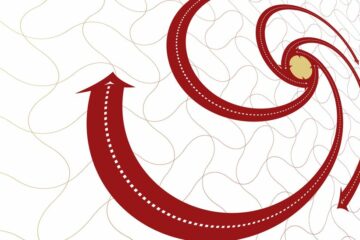
People are innately social, health is social, healthcare is NOT social …
Those of us trained in the natural sciences often have difficulties thinking or formulating our thoughts from a sociological perspective… but it behooves us to stay grounded and cognizant of these principles — after all, a web presence and rooting that presence in social media and medicine should be about everyone… not me, not you, or any other isolated set of individuals.
We should always strive to contribute more than we take… We should endeavor to keep the “human perspective” alive and well… and frankly at the center of the discussion. As Twitter becomes more “mainstream” for healthcare providers and companies alike, the value to the population becomes lost in the vast echo chambers that Twitter has become. Marketers and their messages have permeated the mindset of those seeking to develop a presence on the web, twitter, Facebook or Google + — and that quite honestly is a shame.
A well conceived of and thoughtful use of the medium can improve the human condition by aiding the human interaction. Perhaps one broad purpose of these healthcare social media echo chambers is to hopefully result in a better educated patient, and a physician, nurse or other healthcare professional with a mindset open to embracing a patient who is actively engaged in managing their care and treatment-and help foster that relationship and elevate it to a more meaningful level when the “in real life” (IRL) encounter takes place.
Here is a brief interview with one of the more prominent healthcare and social media sociologists and a fellow member of the Advisory Board for the Mayo Clinic Center For Social Media — Meredith Gould. Enjoy.
-
Please tell us briefly about your background, how you became interested in helping the healthcare community establish communities, and how your presence on #mccsm and sociological background have come together to help you assist those communities from your unique perspective.
[MG] Briefly? I’ll try! I earned my doctorate in Sociology from New York University when theoretical work was valued somewhat more than numbers-crunching. So although I learned quantitative methodologies, I was trained to think critically about what might be going on before designing multivariate research. I was also trained in qualitative methodologies, such as participant and non-participant observation, content analysis, and the like.
My work focused in part on how communities emerge independent of and sometimes within formal organizations. I was also among the first to insist that making a distinction between sex (biological status) and gender (social identity) was important. I left academia after a decade in academia for a career in state government and then in the private sector as a marketing communications executive. Sociology continued to inform my perceptions and strategic recommendations.
Meanwhile, personal health adventures got me interested in the healthcare industry. By 2007, I’d shifted my professional focus to healthcare. I discovered healthcare social media (#hcsm) in 2008 when I got onto Twitter. Once on Twitter, I swiftly became fascinated by how many conversations, while lively and thoughtful, did not seem to evince any sociological smarts.
I’ve made it my mission to ask inherently sociological questions during chats I attend. I’ve played this role on #hcsm, but also within the #hpm (hospice palliative medicine) chat community. I occasionally show up (or lurk) on #RNChat, #MDChat, #socpharm, and other industry-related conversations, waving the flag for critical social science thinking whenever I feel compelled ? to the delight or dismay of some moderators.
-
Can you elaborate on what someone interested in establishing a presence in social media needs to consider from a sociological perspective?
[MG] First and foremost, anyone interested in social media needs to view “social” in sociological rather than colloquial terms. Colloquially, “social” means “chitchat.” Sociologically, “social” means “group.”
We sociologists know and hope to teach others that groups rather than individuals create meaning. For example, The healthcare industry is the mess it is today because of collective, not individual actions. Those collective actions take place within a social context as well as a political economy? these fall within the domain of social science.
We also know and hope to teach others that the process by which individuals form a group and that group becomes a community is a social process. Social scientists on Twitter are keen on social media because it allows us to observe, track, and analyze that social process in real (or near-real) time. Social media allows us to see how healthcare communities are created, sustained, and changed over time; not a lot of time because social media speeds everything up.
Practically speaking, anyone wishing to establish a social media presence needs to understand from the get-go that a particular type of participation is essential. Participation must be consistent, ongoing, collegial, and collaborative. It must be part of or help generate community.
Physicians, for example, can and should bring individual gifts/specialties to bear upon any given healthcare conversation, keeping in mind that conversation involves dialogue. The most successful healthcare industry participants are those who generously offer insights, direct others to resources, and contribute more than they take.
-
You recently left a comment on this blog about how most people, especially those trained in the “hard” sciences have not learned the social science that must be understood to use social media wisely and well. Can you briefly elaborate?
Those of us who work in the natural and social sciences share respect for the scientific method. Things can get a bit tense once we get into conversations about what constitutes data, data collection, validity, and reliability.
Plus I do think we can agree that medical educators tend to train students to pay more attention to clinical variables. Not always or not exclusively, of course. There are several medical specialties where social variables are routinely factored in? geriatric medicine, family medicine, come to mind. I’m always delighted by the sociological sensibility among members of the Collaborative Family Health Association, for example.
Do you have questions regarding an Orthopedic injury or longevity?
Do you want to talk to an expert who can listen to you for 45-60 minutes and explain the options in detail?
Dr. Howard Luks offers remote guidance sessions to review your X-ray or MRI images and explain your options.
Dr. Luks has also received hundreds of requests for educational sessions on the topics discussed in his book, Longevity Simplified.
My comment had more to do with a way of thinking and viewing the world. The world is a social artifact. During my presentation at the Mayo Clinic Center for Social Media’s first Social Residency Program, I talked about how health and healthcare social media strategists must pay more attention to social context.
More specifically, I underscored the importance of looking beyond audience or target market demographics to explore cultural nuances within and between groups. Doing so does not come easily to those trained in the natural sciences, which is why I encourage physicians and other medical practitioners to get and stay in conversation with social scientists like me!
Thanks, Meredith …
Meredith Gould, Ph.D.












